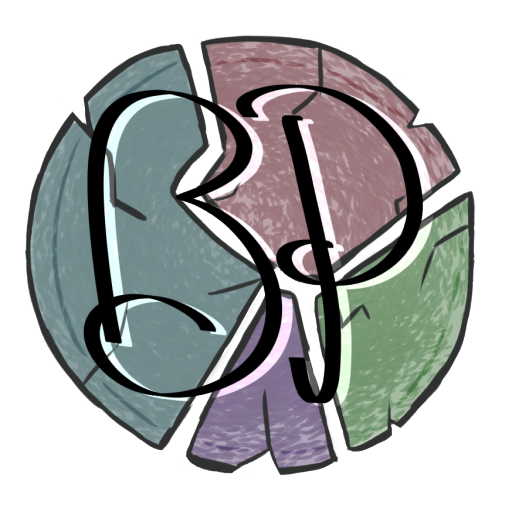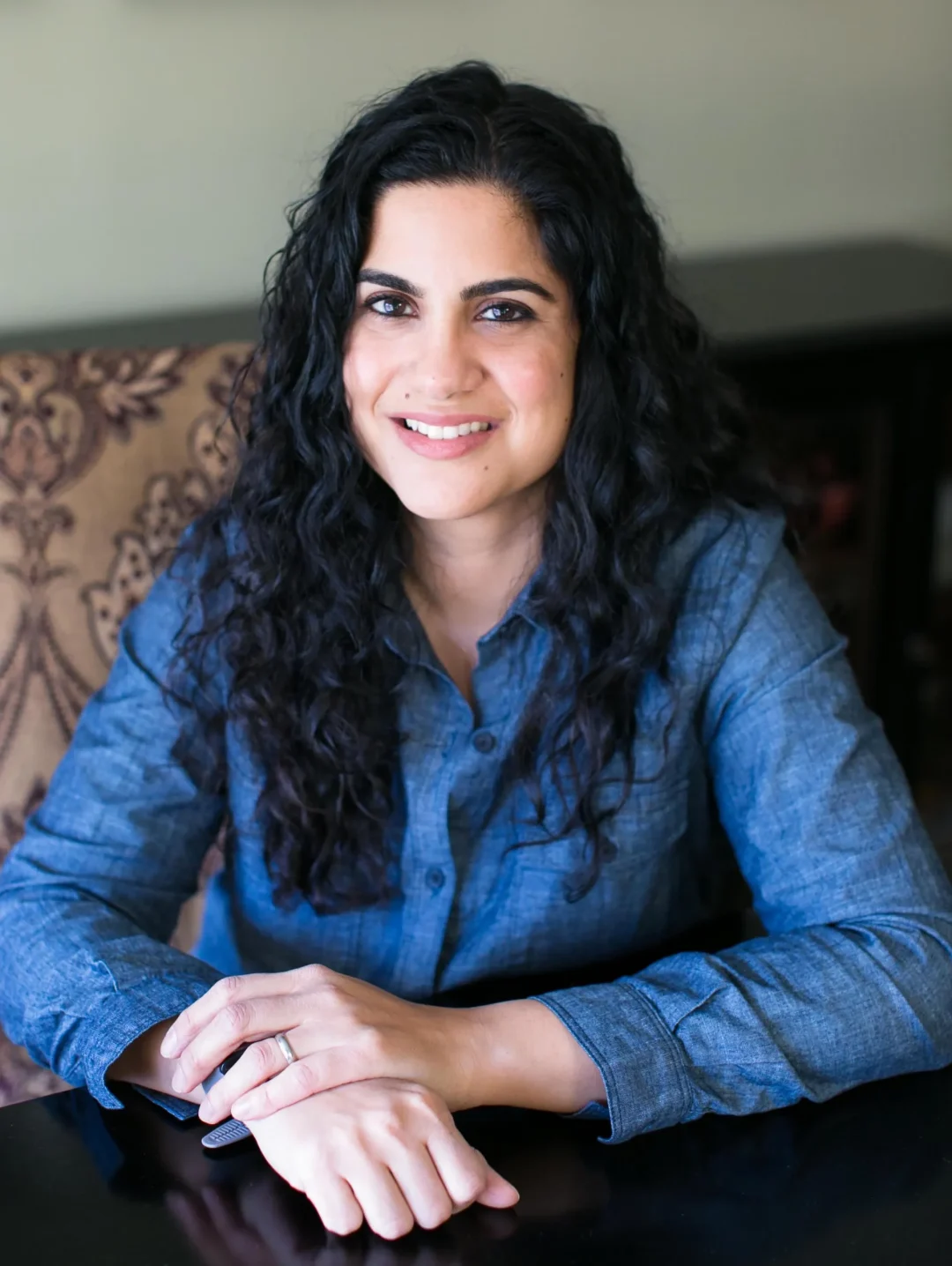Hena Khan has been publishing books for children, including many that center Pakistani American and Muslim characters, for over two decades. She writes award-winning books in a multitude of formats, including picture books, middle grade fiction, pick-your-path adventures, and graphic novels. Her stories often highlight her culture, community, friendship, and family, and draw from her own experiences. Hena’s bestselling novels include Amina’s Voice and More to the Story. She is also the author of the Zayd Saleem Chasing the Dream, Zara’s Rules, and Super You! series. Hena’s acclaimed picture books include Golden Domes and Silver Lanterns, Under My Hijab, and Behind My Doors. She holds an MA in International Affairs from the George Washington University, has served on the board of We Need Diverse Books, and is a member of the Children’s Book Guild of DC. Hena lives in her hometown of Rockville, Maryland.
(RD):
In your graphic novel We Are Big Time, Aliya finds support through her family and the closeness she gains with her fellow teammates. What was your experience in building these relationships through your writing? Did you map out these characters in advance, or did they evolve as you wrote the story?
(HK):
I love that question. I think a lot of my characters and my stories do have strong families and strong friendships, and that’s always something I tend to fall into with my stories. For this one, I had interviewed the real-life players and the coach of the Salaam School team that inspired Peace Academy and my story. And so, a lot of them talked about what it meant for them to be on the team and the way it provided, even for people who had just moved, this instant family and community. So, I wanted to leave that aspect in the story.
But in terms of the actual writing, it was different for me writing a graphic novel than other novels and just straight narrative. I didn’t outline as much as I normally would, and I thought of it much more in a three-act structure, like a film. I knew that Aliya was going to have a strong friend in Halima and the rest of the girls on the team, but it did evolve as I wrote.
RD: I love that. It’s so cool that it was inspired by real life. So, in books such as Amina’s Voice, We are Big Time, and More to the Story, you write about the experiences of Muslim women. When writing from this perspective, have you gained a chance to celebrate the culture and why is it important to represent culture in children’s literature?
HK: I think, for me, it’s always been a goal from when I wrote my first picture book. Because I didn’t grow up seeing any Muslim representation in the literature as a Pakistani-American child of immigrants, and I never saw anybody who looked like me either, that was a priority for me. I’m glad you used the word “celebrate,” because that’s always been the goal. I wanted to lift up other Muslim kids and let them feel proud of who they were. I didn’t want to write “pain” stories or “overcoming” stories. I just wanted to write stories of growing up, with characters who face relatable challenges around making friends, and dealing with changes. But ultimately, I feel like readers get to know my characters and their families and their larger communities, and I hope they can draw a lot of parallels to their own lives. And so, I think that is the best thing I can do as a writer to just familiarize people with families like my own and get them to realize that, if they’re not like them, they can still see themselves and really relate.
RD: I learned a lot just reading about Aliya’s family and the teammates. I really liked that aspect of it. I also really liked, towards the end when they were being interviewed, that they also focused on talking about their basketball careers, in addition to what it meant to be different and those challenges. In books such as Super You, We are Big Time, and The Door Is Open, you explore different formats such as a graphic novel, a pick-your-path book, and a collection of short stories. What was it like exploring these different formats and how was the publishing process different for each one?
HK: For me, as a reader, I read widely and across genres. I know that different types of readers can be more attracted to different types of books, so I love writing widely and having something for everyone. I think, a lot of times, the story is what drives the format. In the case of We Are Big Time, however, it was my first graphic novel. Because I had watched videos of this team and found the visuals and photographs so inspiring, I wanted it to be in a graphic form. I felt like it was very cinematic, and I thought there was something powerful about the imagery.
I loved choose-your-own-adventure books as a kid, but I agreed with my friend, Andrea Menotti, who co-authored Super You with me, that in the classic choose-your-own-adventure books, your choices felt somewhat arbitrary. You had a branching path story, but there were no consequences to your actual choices. That’s why we decided to try this model where your choices lead you on different paths, whether it was superhero or villain. We thought this would gamify the reading experience and give kids more excitement. In general, I like to write across age groups, so kids can grow up reading my books.
RD: Building on your last answer, what has it been like collaborating with your friends? How have you approached this collaboration process? What has been the most rewarding part?
HK: I just love the idea of anthologies, and I have contributed to several. I’ve seen the way teachers especially love using them in their classrooms and can focus on a specific short story. That’s why, for The Door Is Open: Stories of Celebration and Community by 11 Desi Voices, I wanted to assemble a group of writers whom I really love. Everybody was instantly on board, saw what the goal was, and felt invested in the project. We actually interlinked our stories! So, we had to work in a different way than most anthologies—we did not just put short stories together. In this case, there was actually a thread running between them, and our characters were in each other’s stories. It was one of the most rewarding projects I’ve been in. I’ve also co-authored other books, and I just love the idea of two minds or more working together. The creative energy that comes out of being in a group or in a team is just a different experience and makes the writing process less lonely.
RD: Were there any more difficult and challenging parts of the experience?
HK: In the case of writing with someone else, it was hard to keep track sometimes to make sure you’re picking up the same tone and the same style and completing aspects of the story that were started by someone else. But I wouldn’t really call it difficult; it was more something to track. And with the anthology, for me, it was a matter of deciding what order I wanted to put the stories in, where I could add things to build that larger narrative. So really, it was more puzzling through things without it being difficult.
RD:: That makes sense. So, here is my final question: a lot of our readers for The Broken Plate are aspiring authors. What is the one thing you wish someone had told you before publishing your first book?
HK: Well, before I even thought it was possible to push a book, I wish somebody told me that I did have something to say. When I was younger, I didn’t feel like I had anything to say or anything to contribute, and I wish somebody had said, “No, you do.” You just need to figure it out. If you want to write and you write, you’re a writer. You don’t need somebody to anoint you. As a writer, I had a hard time with Imposter Syndrome and accepting the fact I was a writer. Even after I published, I felt uncomfortable calling myself that or using the term author. I really feel like there are so many people out there who are writing who need to own it sooner than I did. And even the term “aspiring writer” I don’t like, because if you are writing, you are a writer. I think sometimes we think we need outside validation to feel like we’ve made it. I just don’t think that works that way.
RD: Yeah, that makes a lot of sense. I definitely understand the imposter syndrome as a creative writing major. Thank you for answering all my questions. It was lovely getting to talk with you.
HK: Those were great questions. Thank you!

